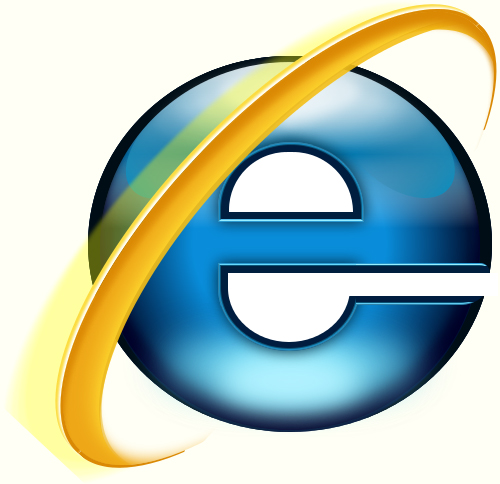Ok, stating the obvious first: most of these (and other logos out there) are based on
vector graphics. You can use a vector-drawing program (such as the free and highly praised InkScape) to draw these graphics so they can be reproduced in any resolution.
Problem is you have certain limits with what you can do with vector graphics - for instance, textured or complexly shaded surfaces require a lot of work.
I think the FLStudio logo is rasterized (painted with brushes and selections), because that metallic background and the fruit are so well-shaded in a way that you can't do easily with vector graphics. Paint your logo in a huge size, in the highest resolution possible, then down-grade for lower icon sizes (in some cases redrawing completely: downsizing can sometimes introduce some nasty artifacts or loss of important detail that you need to do some manual pixel-art so it looks better when in smaller sizes).
I think the other logos you posted are entirely vectorized. The "e" in the IE logo uses complex shading to look like polished glass, but that can be accomplished with borderless, blurred shapes and gradients with transparency - something that .SVG and InkScape support, and opens a whole new world of tricks you can do with blending. For instance,
these water droplets are very realistic but entirely vectorized, thanks to transparent gradient patterns. Still, making that IE logo must've taken a lot of time.
The FireFox logo is very complex shape-wise (all the strands of fur and the highlights, the countries on the planet etc.), but the shading doesn't look as complex as the IE logo. It looks like cleverly overlayed shapes filled with gradients. Cloned shapes with diferent gradients and cut at specific locations can give those hard-edged highlights.










